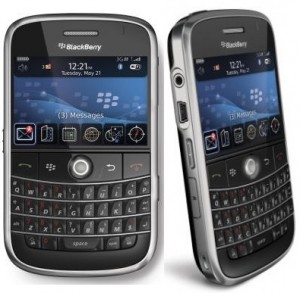The United Arab Emirates is saying that Blackberry phones,w ith their use of RM, is a threat to the country’s national security, since the phones store all communications date overseas and out of reach of the local authorities.
The move renews concerns about efforts by the United Arab Emirates to control the flow of information in the Gulf nation, which includes the business hub Dubai and the oil-rich emirate of Abu Dhabi. The federation of seven hereditary states actively censors websites and other forms of media seen as harming national security and conservative local values.
Because BlackBerry maker Research in Motion’s computer servers are located outside the country, “it makes it easier for them to refuse requests from the authorities for users’ personal data,” said Lucie Morillon, head of the new media desk at advocacy group Reporters Without Borders, which monitors efforts to control smartphone use.
“The authorities cannot access BlackBerry information as easily as they can a local operator’s information,” she said.
It is the second major controversy over the Blackberry in the UAE. A year ago, the country’s biggest state-run mobile operator was caught encouraging unwitting BlackBerry users to install software on the devices that could allow outsiders to peer inside. The government has never made fully clear what happened in that case.
In the latest flap, the Telecommunications Regulatory Authority voiced fears that the BlackBerry manages data in a way that could allow it to be misused. BlackBerry devices were singled out because they are the only phones operating in the country that automatically relay users’ information abroad, the regulator said.
“As a result of how Blackberry data is managed and stored, in their current form, certain Blackberry applications allow people to misuse the service, causing serious social, judicial and national security repercussions,” the regulator said in a statement carried on the state news agency late Sunday.
It said the devices operate “beyond the jurisdiction” of national laws and automatically send data abroad to be “managed by a foreign, commercial organization.” That is apparently a reference to RIM’s system of relaying data such as e-mail messages to network servers offshore that are separate from those operated by local mobile providers.
“Some people might not like that,” said Bruce Schneier, an author and chief security technology officer at British telecommunications operator BT. He said authorities’ concerns with the overseas servers could be twofold: “They can’t get to it, or other people can.”
The TRA said the BlackBerry was launched in the UAE before “safety, emergency and national security legislation” regulating their use was enacted in 2007. It did not specify what changes it is seeking or if it was contemplating an outright ban.
An official at the TRA said Monday the agency had no further comment, and that no decision about the phones’ future in the country had been made. She would not provide her name, as is customary among Emirati government officials.
Spokeswomen for BlackBerry maker RIM said the Canadian company did not yet have any comment.
Just over a year ago, RIM criticized a directive by UAE state-owned mobile operator Etisalat telling the company’s more than 145,000 BlackBerry users to install software described as an “upgrade … required for service enhancements.”
RIM said tests showed the update was in fact spy software that could allow outsiders to access private information stored on the phones. It strongly distanced itself from Etisalat’s decision, and provided details instructing users how to remove the software.
The UAE is not the first country to raise concerns about BlackBerry phones. The tiny Gulf state of Bahrain earlier this year threatened legal action against BlackBerry users who were sharing local news through a chat function on the devices.
Indian government security agencies have also raised concerns that the way the BlackBerry handles data could put the nation at risk, according to a report this month in the country’s Economic Times.
Morillon said governments in the Gulf are increasingly concerned about the growing use of the phones’ BlackBerry Messenger application, which can be harder to monitor than other forms of communication.
“It looks like it has become a channel to spread information, and maybe mobilize online, which is something that worries the authorities,” she said.
Source: Yahoo.




Pingback: dsdew